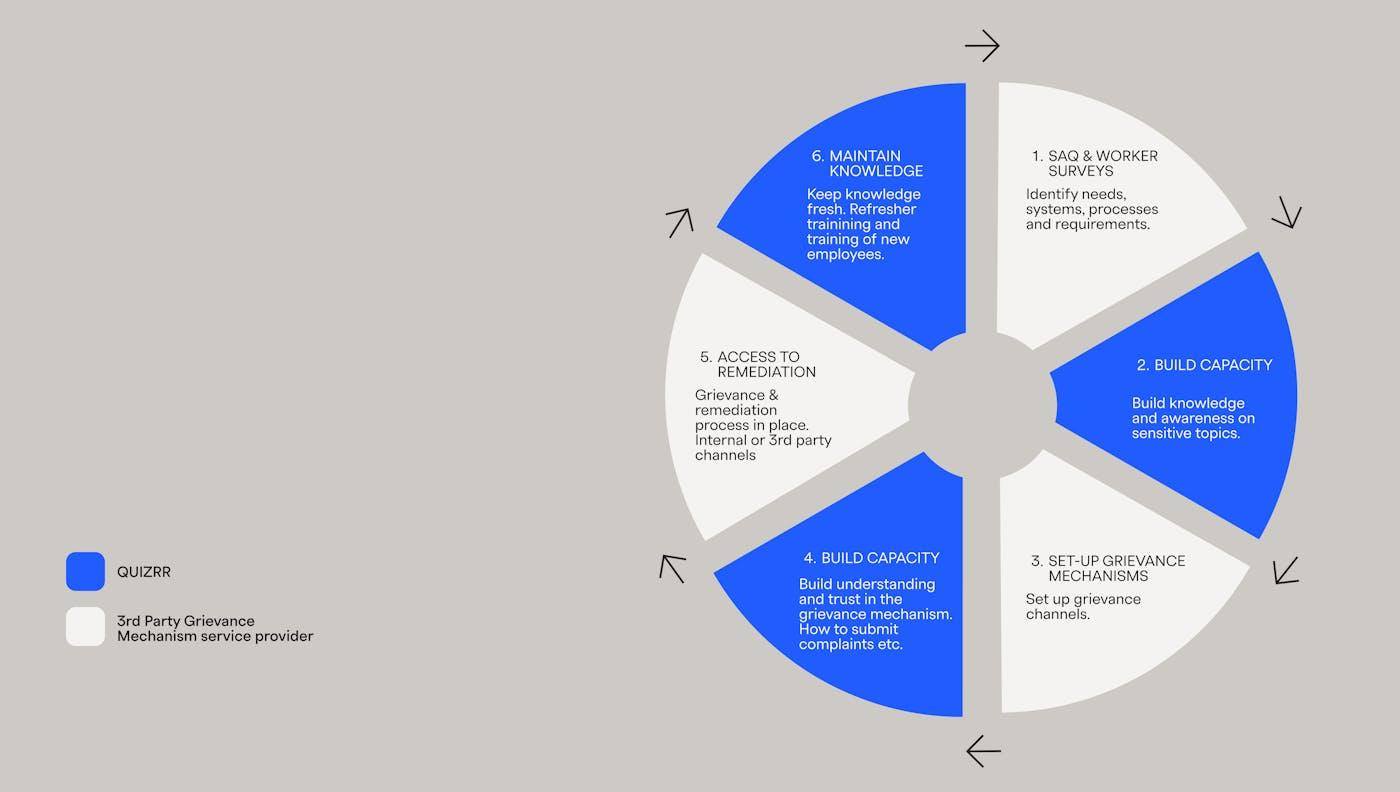Mandatory HRDD
Grievance mechanisms is a mandatory component of upcoming of human rights due diligence legislation (CSDDD, German Supply Chain Due Diligence Act, Norwegian Transparency Act). An effective grievance mechanism has several benefits:
- Proactively identify and prevent risk
- Is an essential part of any human rights due diligence system
- Increase employee wellbeing
- Decrease employee turnover
Why Capacity Building

Grievance mechanisms are a necessary instrument to ensure workers have access to remedy. Engaging and building trust with workers is a key part of effective grievance mechanisms. Most grievance mechanisms do not receive enough complaints from intended users. There are three reasons for this:
Trust
There is a lack of trust in the grievance mechanism, for example Gender-based violence and harassment (GBVH).
Empowerment
Workers have a low level of understanding on their rights.
Awareness
Inability to raise complaints due to a lack of knowledge on the grievance mechanism.
To build strong and trusted Grievance Mechanisms, there needs to be capacity building on both worker and manager level as well with grievance committee members.
Learning Programs
Grievance Maturity Framework
REWRITE TEXT
To support CHs in making changes and improvements to their grievance mechanisms, the report includes a Four Stage Maturity Framework. This includes steps that CHs can take cumulatively to improve their mechanisms in a comprehensive manner. The below sets out what a CH can expect to have achieved by the end of each Stage.
- Initiate awareness raising with workers
- Train management on their roles for GM & remediation
- Messaging on non-retaliation
- Strengthen awareness (embed in inductions)
- Make awareness materials accessible
- GM staff trained on handling sensitive topics.
- Accessibility
- Better integration of gender
- Defined procedures for specific HR issues
- Build training into remediation
- Sensitive issues received
- Proactive measures in place
- Gradual decrease of complaints as measures take hold




